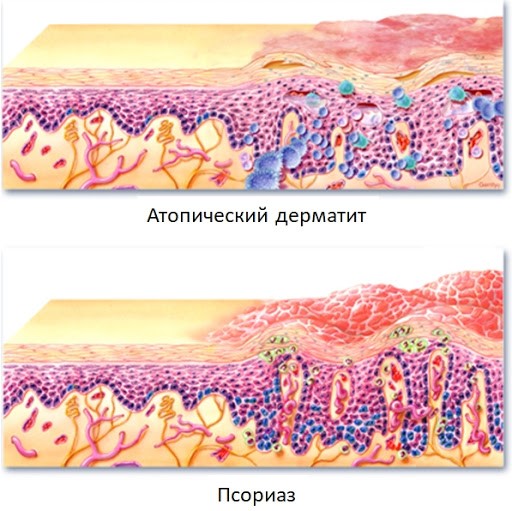Atopic dermatitis (often referred to as eczema) is a chronic inflammatory skin disease with a complex pathogenesis involving genetic predisposition, dysfunction of the immunological and epidermal barrier, and environmental factors. Itching is the main symptom; Skin rashes range from mild erythema to severe lichenification. Diagnostics includes taking anamnesis and examination. Treatment consists of moisturizing agents, limiting contact with allergenic substances and irritants, and often using topical glucocorticosteroids or immunomodulators. Atopic dermatitis that develops in childhood often regresses or diminishes significantly in adulthood.
Treatment of atopic dermatitis
Atopic dermatitis (often referred to as eczema) is a chronic inflammatory skin disease with a complex pathogenesis involving genetic predisposition, dysfunction of the immunological and epidermal barrier, and environmental factors. Itching is the main symptom; Skin rashes range from mild erythema to severe lichenification. Diagnostics includes taking anamnesis and examination. Treatment consists of moisturizing agents, limiting contact with allergenic substances and irritants, and often using topical glucocorticosteroids or immunomodulators. Atopic dermatitis that develops in childhood often regresses or diminishes significantly in adulthood.
Symptoms:
• Skin rashes
• Itching
• Dry and flaky skin
The causes of the disease
There is no single reason for the development of atopic dermatitis. A whole complex of conditions contributes to the onset of the disease: genetic characteristics and environmental factors. These include a violation of the protective function of the skin (it becomes more vulnerable to the effects of detergents or other irritating factors), features of the immune system, climatic conditions (temperature, humidity, dust, tobacco smoke and other impurities in the external environment). The possible impact of the microbiome is being studied.
Treatment
• Supportive care (eg, moisturizers and dressings, antihistamines for itching) • Limiting exposure to provoking factors
• Limiting exposure to provoking factors
• Topical corticosteroid drugs
• External immunomodulators
• Krisaborol 2% ointment
• Dupilumab
• Systemic immunosuppressants
• Sometimes ultraviolet (UV) therapy
Supportive therapy
Skin care includes the following measures:
• Water humidification
• Use of cleansers, hypoallergenic, soap-free, pH neutral and below, fragrance-free
• Taking a bath with diluted illuminator or colloidal oat flour
In our clinic you can get the following services: Dermatology | Laser Surgery | Laser | Laser Vaginoplasty | Cosmetology and good consultation




